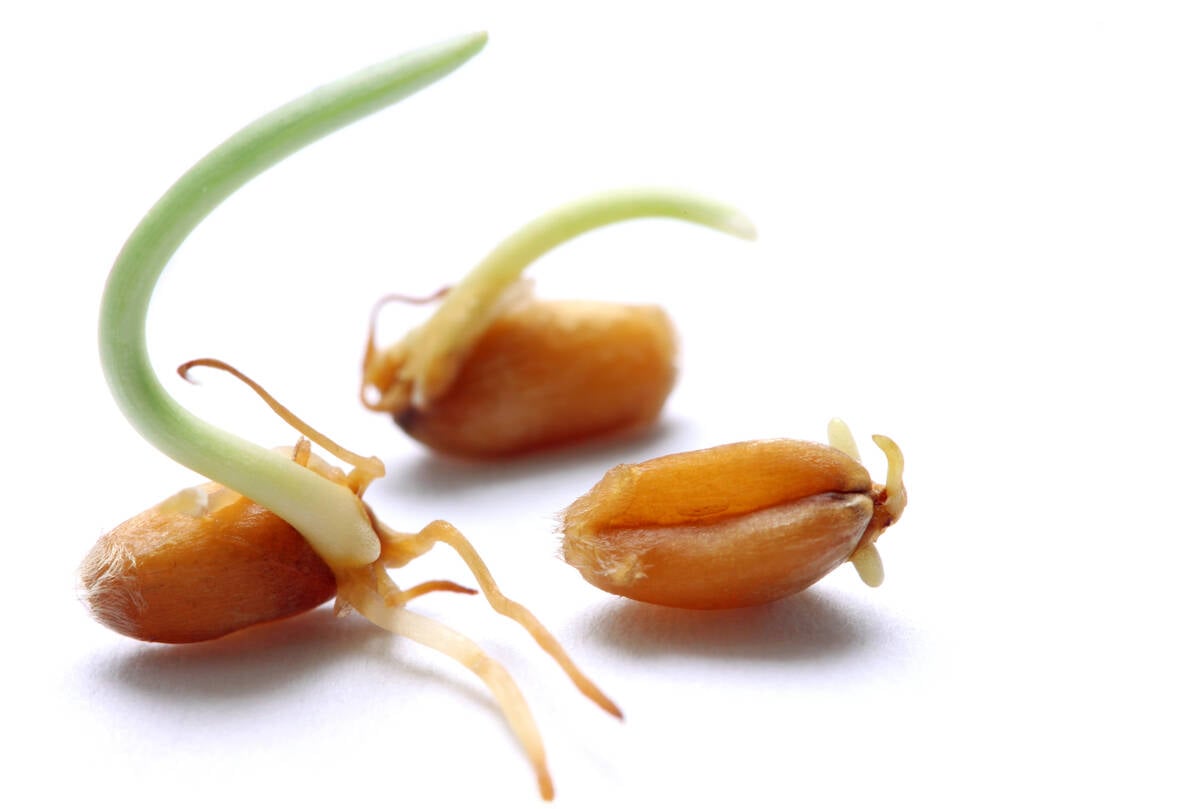TORONTO – Canadian Federation of Agriculture president Bob Friesen was checking off a different, less favourable list as Jean Chrétien de-scribed his successes from 10 years as prime minister.
It was not a good decade for farmers, Friesen reckoned. Farm debt grew, farmers left the land and farm income fell despite increased sales.
“We’ve lost a lot of farmers,” he said in a Nov. 15 interview. “We’ve lost a lot of farms, our net farm income has decreased and our farmers are working off the farm to make a living.”
Read Also

Manitoba farmers fight sprouted wheat after rain
Rain in mid-September has led to wheat sprouting problems in some Manitoba farm fields.
He said it would be unfair to blame all those problems on the Chrétien government, but the solutions the government developed were not always adequate.
“I’m not trying to hang that on anybody,” said Friesen.
“But we are trying to help government develop policies that will address those problems.”
The retiring prime minister did not mention agriculture in his speech, but he claimed credit for much national progress when he addressed the national Liberal party congress as leader for the last time before Paul Martin took over Nov. 14.
In 1993, said Chrétien, the country was divided after nine years of Brian Mulroney and the Progressive Conservatives, facing Quebec separatism and close to bankruptcy and disintegration.
“Canada was on the brink of disaster, of falling apart,” he told close to 10,000 in a farewell speech at the Air Canada Centre. “People were giving up. The dice had been rolled on our national future.”
While Chrétien was winning applause for his accomplishments, Friesen was preparing to talk about some failures.
At a Nov. 15 Liberal convention workshop on the economy, the CFA president said it has not been a good decade for farmers.
Net income fell from $2.5 billion to $2 billion, debt rose $20 billion to $43 billion, the number of farmers fell by 39,000 and the proportion of young farmers in the mix fell drastically.
Gross farm income increased $12 billion over the decade to $35 billion, said the Manitoba farmer, but “net farm income has been going the other way.”
Friesen told the Liberal audience that the answer is to support programs that work, like supply management and the Canadian Wheat Board, negotiate an international trade deal that reduces foreign subsidies and opens markets to Canadian products, and create domestic farm policy that is dependable and fair for Canadian farmers.
He warned in particular that the next Liberal government should not sign any international trade deals that would undermine supply management, which he said produces rare stability in Canada’s farm sector.
“If we develop a domestic program that works, we must defend it,” he said.
Friesen also cautioned the Liberal delegates, many of them urban, not to believe economists who suggest farmers need only to expand and become more efficient to survive. He said farmers already are expanding.
“Many are reaching the point of diminishing returns before they reach the level of efficiency they need to make any money.”
Demands for tougher food safety rules on farms will produce a cost of at least $480 million in the years ahead.
“Farmers will pick up some of that cost but others will have to step up as well,” Friesen said.
“Farmers have always produced safe food. It’s not that it’s any safer now. But consumers want farmers to prove due diligence on the farm and that’s the information we’re providing to consumers so they have more confidence in the food. It has a price tag.”














